Deploy Azure Functions with GitHub Actions using AzCopy
When deploying Azure Functions the most straightforward approach is to use the actions/checkout@v2 recommended by Azure
However, there are some restrictions with this approach. Using this approach. The Azure Functions will only work using the Run from package option. There are two reasons why this wasn't great for a Next.js custom server.
-
Next.js requires to have write access for its Incremental Static Generation. With the Run from package option you can't use this feature.
-
Because there is no write access it's also not possible to use the Azure App Service Editor. During development I love this feature to test changes quickly without having to wait for deployments.
Alternative ways for deploying Azure Function with GitHub Actions
Using the Azure CLI
Instead of using the recommended actions/checkout@v2 it's also possible to use the Azure CLI directly in the .yml file. Before doing so, it's required to run a login command first. To run this you'll need deployment credentials which can be generated through the Azure Cloud Shell for example.
If you have the required permissions within your organisation you're in business! Now you can run all the deploy commands available for Azure Functions.
I did not have the required permissions to create deployment credentials. Also, when trying to run this locally I found the deployments pretty slow. Just the Azure Functions are deployed quickly but with the Azure Functions also came a big Next.js build folder and their NPM dependencies (with and without remote builds).
Using AZ Copy
This is the solution I picked for deploying Azure Functions. It's reasonably quick for big projects and I have full access to the Azure App Service Editor and write access. Let's show the implementation step by step.
-
Create the Function App
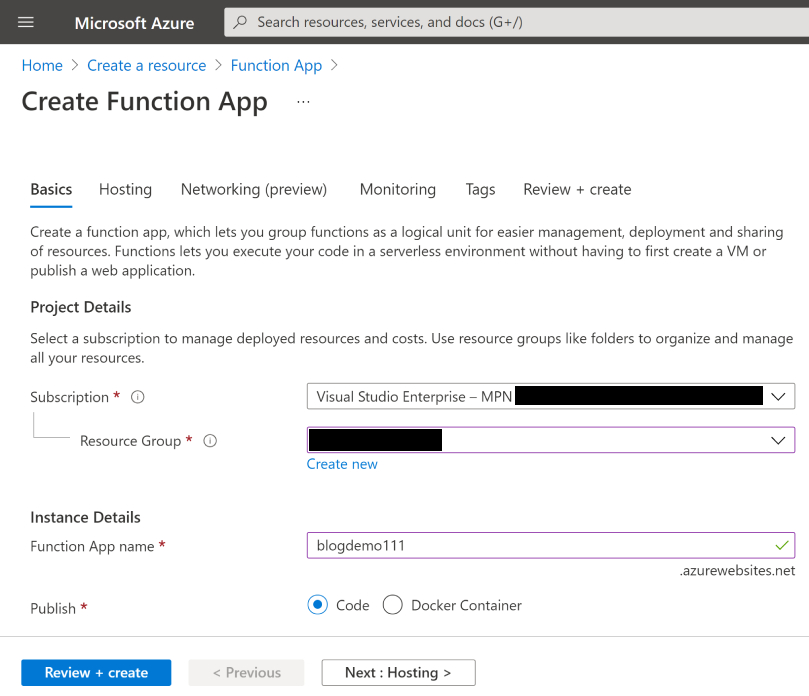
-
Select or create a new storage account
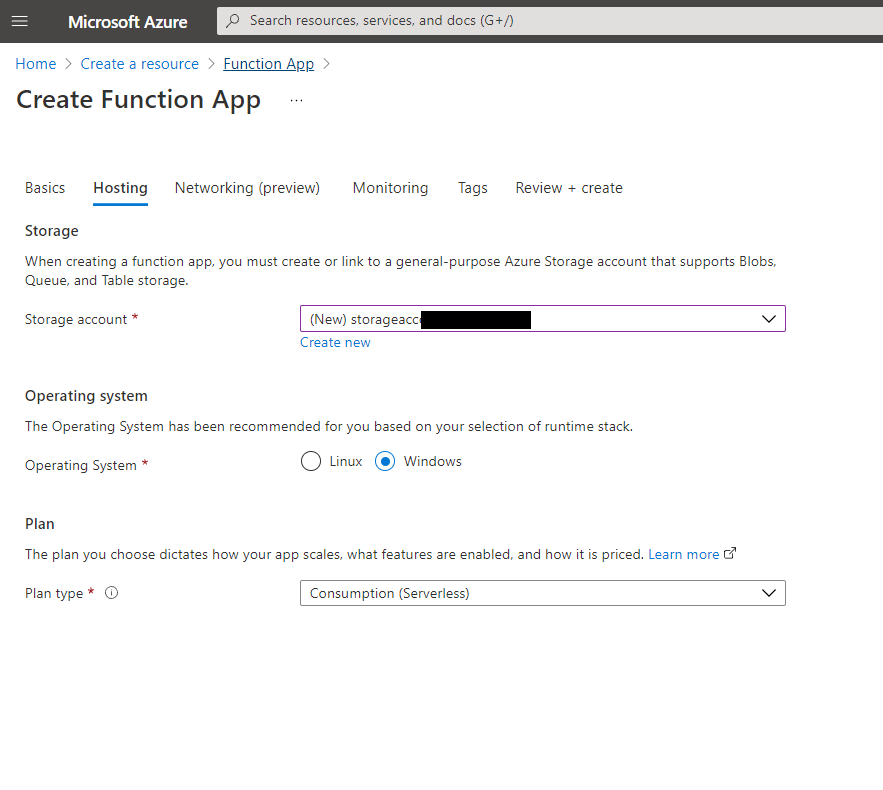
-
See how the Function App is connected
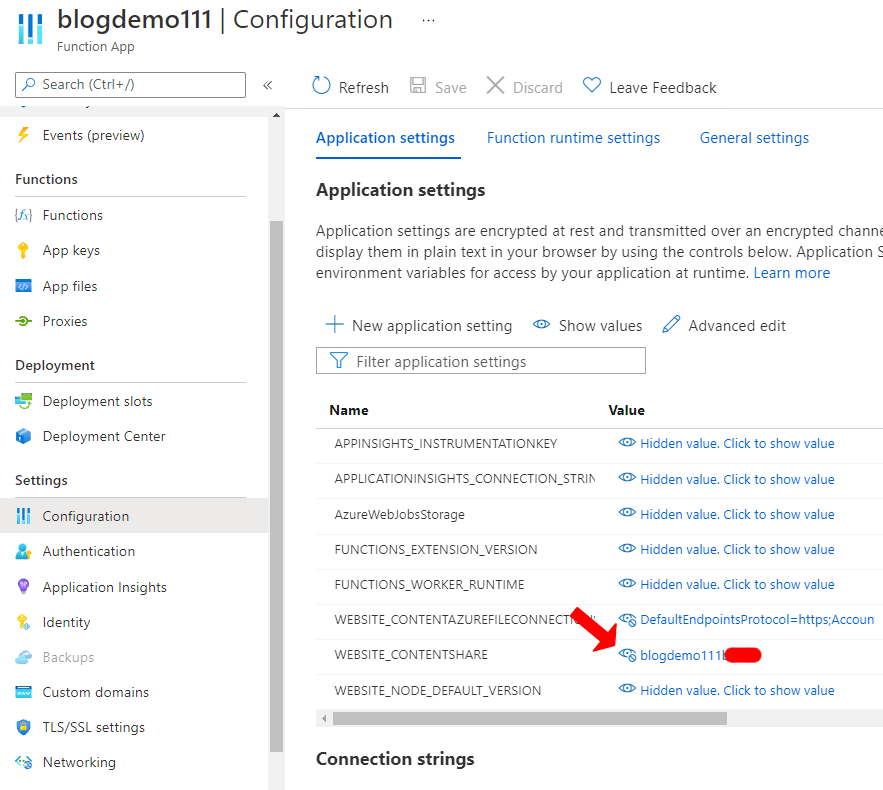
This helped me to understand how the deployments to Azure Function Apps work. I figured out that all it takes is to upload a set of files to the wwwroot folder of the fileshare within the storage account.
- Set up the GitHub action
See below an example on a yml I use for the deployment of an Azure Function. Place this file in the
.githubdirectory of your project and GitHub will automatically recognise the file and add the Action to the UI.
Personally, I like to use the workflow_dispatch event. I don't like to run a full build on each time I push some code.
name: Deploy Azure Function
on: [workflow_dispatch]
env:
NODE_VERSION: "14.x"
## Enter the path to your storage account and include the name of the file share
AZUREFUNCDEST: "https://${pathtostoreageaccount}.file.core.windows.net/${filesharename}/site/wwwroot"
jobs:
build-and-deploy:
runs-on: windows-latest
steps:
- name: "Checkout GitHub Action"
uses: actions/checkout@main
- name: Setup Node ${{ env.NODE_VERSION }} Environment
uses: actions/setup-node@v1
with:
node-version: ${{ env.NODE_VERSION }}
## Install a community package that adds the azcopy tool
- name: Install azcopy
uses: kheiakiyama/install-azcopy-action@v1.0.3
## Build your application, replace Lerna with NPM/Yarn if that's more suitable for your project
- name: "Lerna bootstrap & azure functions build"
shell: pwsh
run: |
lerna bootstrap
npm run build
popd
## Clean up the directory before copying the new stuff over
- uses: kheiakiyama/install-azcopy-action@v1
with:
version: "v10"
- run: azcopy_v10 rm '${{ env.AZUREFUNCDEST }}?${{ secrets.SECRETSASTOKEN }}' --recursive
## Copy the contents of the azure functions
- uses: kheiakiyama/install-azcopy-action@v1
with:
version: "v10"
- run: azcopy_v10 copy './packages/azure-functions/*' '${{ env.AZUREFUNCDEST }}?${{ secrets.SECRETSASTOKEN }}' --recursive
To authenticate the copying of the files, generate a SAS Token on the storage account.
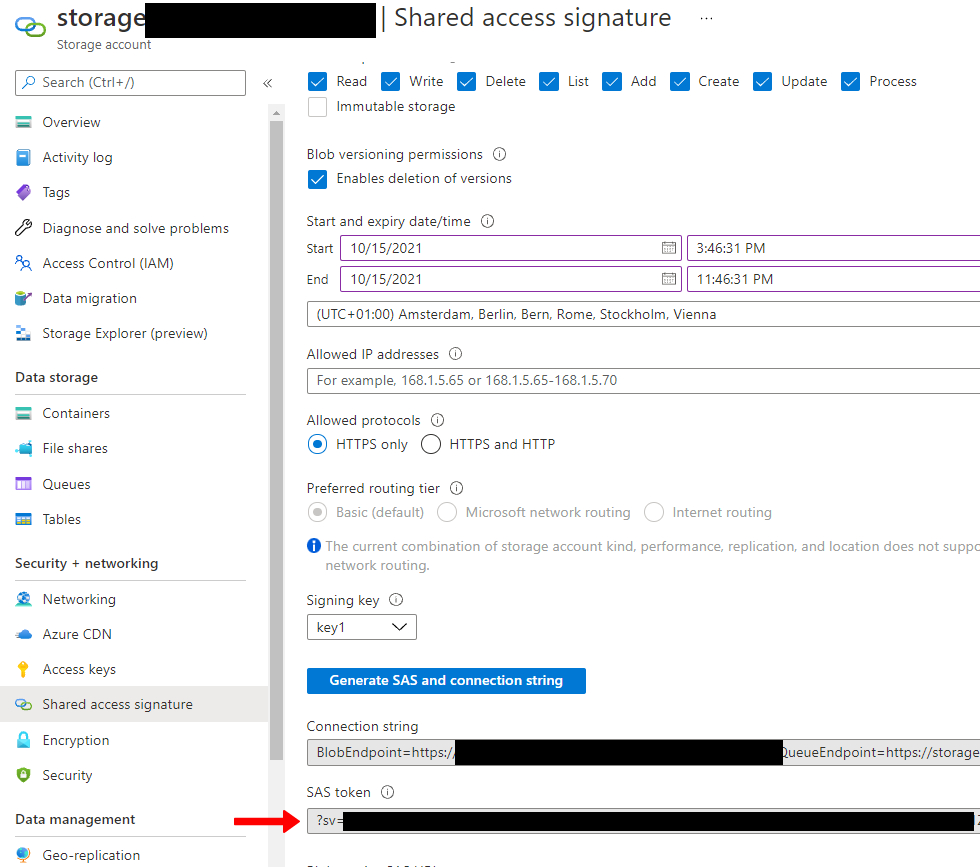
Add the SAS Token to the GitHub secrets:
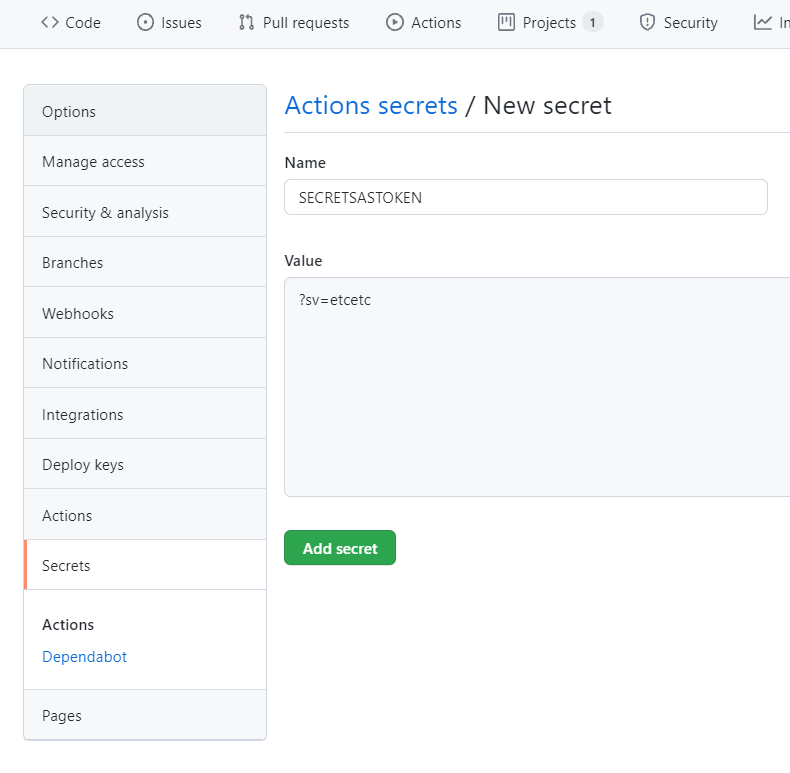
There you go, now you can run the GitHub action and your Azure Function will be deployed. Hopefully, this could be a useful alternative for deploying Azure Functions using GitHub Actions!